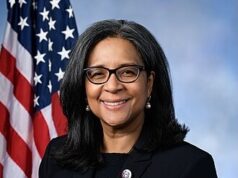A Statement from Alliance to Save Energy President Kateri Callahan
WASHINGTON, D.C. – July 27, 2015 – (RealEstateRama) — “Yesterday, the Senate Energy and Natural Resources Committee took an important step towards enacting the first major energy bill in nearly a decade. The bipartisan Energy Policy Modernization Act of 2015 contains many provisions in the energy efficiency title that are supported by the Alliance to Save Energy. With the addition of several amendments noted below, the Senate bill provides a solid energy efficiency foundation for comprehensive energy legislation that should be enacted by Congress this year.
“We commend the leadership of Chair Murkowski and Ranking Member Cantwell, and the hard work of the Committee staff, for their?commitment to following a bipartisan process, as evidenced by the inclusion of a nearly equal number of provisions from Republican and Democratic sponsors. We also commend the Committee for including a significant portion of S. 720, the Energy Security and Industrial Competitiveness Act authored by Alliance Honorary Chair, Senator Jeanne Shaheen (D-N.H.) and Alliance Honorary First Vice-Chair Rob Portman(R-Ohio).
“One key provision, however, is missing: the SAVE Act. This bill would require federal mortgage agencies to recognize the energy efficiency upgrades in a home during the mortgage underwriting process, thereby increasing the value of the home. The SAVE Act corrects a flawed valuation system and should be added to the Senate bill during the full Committee mark up next week.
“The Alliance has previously endorsed the following provisions that were included in the Committee’s bill:
Language?repealing the requirement in Section 433 of the Energy Independence and Security Act (EISA) that the federal government phase out the use of fossil fuels by the year 2030. This language has been combined with a provision accelerating the federal government’s activities to become more energy efficient, by requiring a 2.5 percent annual efficiency target over the next ten years. The language is also fully consistent with the President’s Executive Order 13693;
- S. 1054, the Smart Manufacturing Leadership Act sponsored by Senators Shaheen (D-N.H.) and Alexander (R-Tenn.), which would establish a national smart manufacturing plan and provide assistance to small- and medium-sized manufacturers in implementing smart manufacturing in their facilities;
- S. 1046, the Smart Building Acceleration Act sponsored by Senators Cantwell (D-Wash.) and Murkowski (R-Alaska), which will accelerate the transition to smart buildings by supporting research and by documenting the costs and benefits of emerging technologies in private-sector and federal government buildings;
- S. 703, legislation introduced by Senator Coons (D-Del.) to reauthorize the State Energy Program and the Weatherization Assistance Program;
- S. 858, sponsored by Senators Gardner (R-Colo.), Coons (D-Del.), Portman (R-Ohio) and Shaheen (D-N.H.), which encourages the use of Energy Savings Performance Contracts (ESPCs);
- S. 723, sponsored by Senators Schatz (D-Hawaii), Alexander (R-Tenn.), Coats (R-Ind.) and Coons (D-Del.), which clarifies the rules governing the use of Utility Energy Service Contracts (UESCs); and
- S. 600, sponsored by Senator Klobuchar (D-Minn.), which would require the Secretary of Energy to establish an energy retrofit pilot program for nonprofit buildings.
“These are all great energy efficiency measures. We urge the Committee to add the SAVE Act, and further to include:
- S. 893, sponsored by Senators Warner (D-Va.) and Manchin (D-W.Va.), known as the EPIC Act, which would establish the Energy Productivity Innovation Challenge to assist energy policy innovation in the States. The addition of these provisions would make an already robust, bipartisan bill even stronger, and we urge the Committee to adopt them when the bill is considered by the full Committee.
“This step by the Senate ENR Committee, coupled with the bill reported Tuesday by the House Energy and Power Subcommittee, reflects the unprecedented bipartisan and bicameral?interest in energy efficiency.?Hard work, much negotiation and inevitable compromise lies ahead, but the House and Senate Committees this week have laid a foundation for comprehensive energy legislation, and we urge the full Committees in both chambers to approve their respective bills and get us closer to the goal of enacting an energy bill by the end of the year.”
MEDIA CONTACTS
David Lanham

















